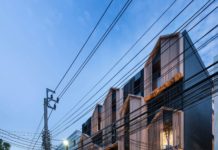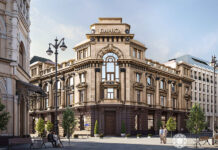More than a month has passed since the appointment of the new government of the Russian Federation. During this period, several important statements have already been made. What can the real estate market expect?

More than a month has passed since the appointment of the Russian government, during this period several important statements have already been made. Thus, Minister Vladimir Yakushev and Deputy Prime Minister Marat Khusnullin named the fight against the problem of defrauded equity holders among the main directions of policy in the construction sector. It is also important to comply with presidential decrees to increase construction volumes. Including – through the distribution of the renovation program implemented in Moscow throughout the country. Will it help developers or, on the contrary, complicate their lives? The material was prepared on the basis of data from the Metrium company.
Forced transfer of developers to a new scheme and aggravation of the problem of defrauded equity holders
Since the middle of last year, the system of shared construction has changed in the country. Developers no longer raise funds from equity holders directly. For construction, developers take loans from a bank, which keeps the money of apartment buyers until the house is put into operation on escrow accounts. However, current projects in which at least 10% of apartments have been sold and the readiness of which is 30% can be completed according to the old rules, that is, by attracting buyers’ money directly. Applications to prove the object’s compliance with the criteria were accepted until October 1, 2019. Developers of all other complexes (including new ones) are obliged to implement the new model.
They tried very hard to “soften” the transition, and as a result it became not very effective. Projects for which an exception was made turned out to be not just a lot – a large part. At the beginning of February 2020, according to Dom.rf, 3.4 thousand developers were working in Russia, building 102.7 million square meters. meters of housing. 2.2 thousand, or 65% of developers, the authorities approved the completion of existing projects according to the old rules. Only 1.1 thousand companies, or 32%, switched to the new scheme. Another 11% of developers did not approve of the work in the old way, and they could not switch to the new rules either (over 350 companies).
Thus, most developers continued to work as before. There is no guarantee that they will fulfill their obligations. The authorities did not set any time limits for the implementation of projects. Some large-scale complexes can be built for several more years within the framework of the old model. In the event of a collapse of developers, new victims may appear. At the first working meeting in the Ministry of Construction, Marat Khusnullin announced the need for “a tougher program of work with defrauded equity holders.”
We can talk about radical steps. So those who have received permission to work in the old way can set a deadline by which they must switch to the new model. For example, by January 1, 2021. Today it is known that the Ministry of Construction has prepared this proposal, it is being considered by the government of the Russian Federation. This period can also be set for developers who have not been able to fit into one of the two schemes (11% of companies), and if they refuse, they can liquidate the legal entity of the developer. This decision will allow the industry to be rebuilt within a year, and, according to the authorities, to exclude the emergence of new defrauded equity holders.
Since 2018, the number of bankrupt developers in the country has doubled, to just over 500 companies. This is associated with the reform of shared construction
Despite the gradual transition, not all companies were ready for it, many market players remained in limbo. The reason was difficulties in obtaining loans for low-profit projects, of which there are many in the country, and the high cost of credit funds. The latter forces developers to raise housing prices, which are already high for most potential buyers. Therefore, many may refuse to withdraw new projects. And the compulsory transfer to a new scheme of current objects before their commissioning can disorganize the work process, a jump in the cost of the finished product and the emergence of new defrauded equity holders, which may become people who have previously invested in these complexes.
Approximately 42% of houses that are being built in Russia are planning to be commissioned in 2021 and later (data from the United Resource of Developers). In 2021, 22.9% of buildings are to be commissioned, in another year – 8.4%, in two – 4.9%, in three – 2.1%, and in 2025 and later – 3.3%. Today 19% of new buildings have not been commissioned on time. That is, developers of about 5 thousand houses (42%) may have to transfer the ongoing project to a new financing model.
Since 2018, the number of bankrupt developers in the country has doubled, to just over 500 companies. This is associated with the reform of shared construction. The number of such developers may increase. Not everyone will be able to get a loan, construction will be stopped, the problem with defrauded equity holders will worsen. Now there are 200 thousand of them (data from the Fund for the Protection of the Rights of Participants in Shared Construction). Paradoxically, the reform, which is aimed at solving the problem, leads to an increase in the number of defrauded equity holders. If the problem affects only developers who did not fit into the reform (11%), then even then the number of victims may rise by 1.5-2 times.
Negative consequences are possible for the industry as a whole. Many development companies may leave the market, the volume of construction will decrease and competition will weaken. In big cities, for example, in Moscow, only 10 companies account for 64% of apartments sold with several thousand developers across the country. Monopolization will affect the rise in prices and a decrease in the quality of construction.
Active renovation throughout Russia and the revival of the construction industry as a whole
In Moscow, the last renovation program was announced in 2017. On the initiative of the authorities, residents of five-story buildings voted to demolish their houses with the subsequent receipt of a new apartment instead of an old one in a new building in the same area (or neighboring). The program included over 5 thousand Khrushchevs, whose residents are being resettled in several waves. The city finances the construction of housing for the first wave. When it is resettled, and the houses of these people are demolished, buildings for the second wave will be built in the vacant place. The new buildings have more apartments than are necessary for the displaced persons. “Surplus” is sold on the market. In addition, they plan to attract developers for resettlement and development on the site of five-story buildings.
Also, the renovation program can become a more effective option for solving the problem of resettlement of dilapidated and dilapidated housing
Marat Khusnullin said on the air of the Russia 1 TV channel that the renovation project needs to be developed throughout the country. It is complex, so we need to “weigh and evaluate everything, but for now we can start working on it in large cities.” In the regions, the program will differ markedly from the capital: there are no funds to finance the first wave and the construction of starting houses for migrants. Also, the regions have low margins in the industry, which will not be able to cover the costs of relocation from old buildings.
The authorities will need an additional source of funding: from the National Welfare Fund or the federal budget. To do this, they can create a bank that will provide funds for development projects at a low rate, more attractive for the regions. At the same time, local authorities can stimulate the renovation of infrastructure facilities and simplify the mechanism for integrating new buildings into them.
If renovation spreads to the whole country, then the volume of housing construction and the provision of housing to the population could grow sharply. The capacity of the country’s construction industry, according to Rosstat, is only 60% loaded. The total building area is 100-130 million square meters, and the delivery of housing is 80 million square meters. meters. To increase the indicator to 120 million per year, the activity of builders should increase almost 1.5 times, up to 150-200 million square meters. meters in construction.

population will approach European standards against 25.8 square meters. meters of housing today. Also, the renovation program can become a more effective option for solving the problem of resettlement of dilapidated and dilapidated housing. In Moscow, this task was completely solved, but in the country, as reported by Rosstat, there are still million square meters left in the emergency housing stock. meters.
In addition, renovation across the country can not only improve the adaptability of the industry, but also revive economic growth. Construction will have a large multiplier effect, it is expected that additional jobs will appear in the building materials industry, trade, transport and the financial sector. And then a radical restructuring of the entire construction financing scheme will become quite a feasible task for an already strengthened sphere.















